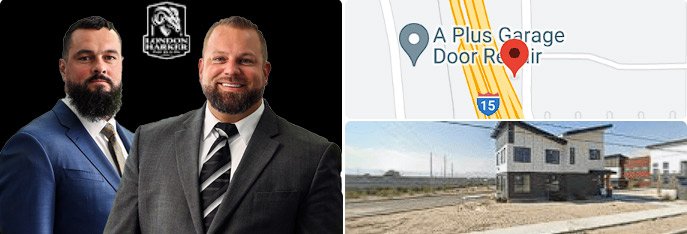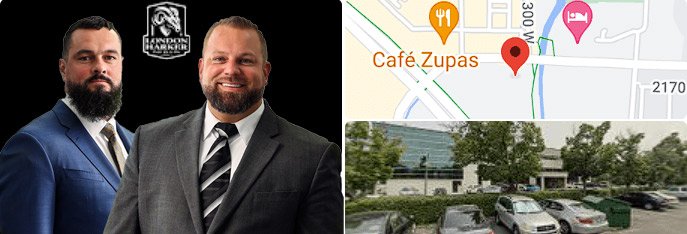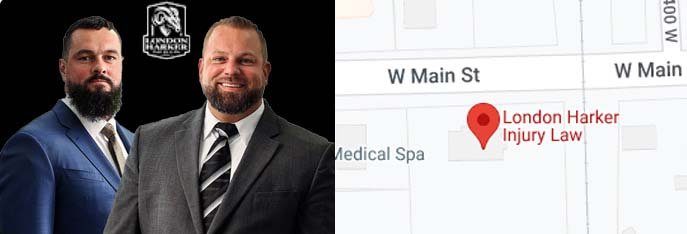Posted on Saturday, June 21st, 2025 at 8:30 pm
A car accident can be disorienting, stressful, and emotionally taxing—especially if you’re injured. One of the most important steps in the aftermath of a crash is obtaining an official police report. In Utah, this report serves as a foundational document in both insurance claims and legal proceedings. It not only establishes a record of the incident but also plays a vital role in determining fault and securing compensation for injuries and damages.
Why Police Reports Matter After a Car Accident in Utah
1. Insurance Claims Depend on It
When you file an auto insurance claim after a crash, your insurance company—and the other driver’s insurer—will request a copy of the police report. This document includes:
-
A summary of the crash, including date, time, and location
-
Road conditions, vehicle positions, and diagrams
-
Statements from drivers and witnesses
-
Citations issued or violations observed
Insurers use this information to assess liability and determine the value of your claim. Without a police report, your claim could be delayed or result in a reduced payout.
2. Supports Legal Claims and Court Proceedings
If you pursue legal action for personal injury or property damage, a police report can be a powerful tool for your case. It provides:
-
Documentation of negligent behavior (e.g., speeding or running a red light)
-
Officer narratives and factual observations
-
Witness accounts and visual diagrams
While the report itself may not always be admissible in court as direct evidence, it helps establish a case strategy, aids in settlement negotiations, and reinforces your version of events.
Reach out to London Harker to learn more about your legal options and how a police report can support your injury claim.
3. Establishing Fault Under Utah Law
Utah follows a modified comparative fault system. This means your compensation can be reduced if you’re found partially at fault—and barred entirely if you’re 50% or more at fault. Police reports often influence fault determinations by documenting:
-
Officer opinions on who caused the crash
-
Traffic law violations
-
Physical evidence like skid marks or damage patterns
Though not definitive, this information is often persuasive in both insurance and legal settings.
4. Creates an Official Record
Memories fade, and stories can change. The police report captures the facts of the accident while they’re still fresh. This official record is critical when filing claims or disputing false accounts.
If the other driver later tries to revise their story, the report provides a baseline for what actually happened.
How to Get a Utah Accident Report
You can request a Utah crash report through:
-
Utah Department of Public Safety for accidents investigated by the Utah Highway Patrol
-
Local law enforcement agencies for city-level crashes
Ways to Request:
-
Online: Use the Utah Crash Report Portal for faster access.
-
In-person or by mail: Submit a form with your ID and case details.
Required Info:
-
Date and location of crash
-
Your name or involved party names
-
Case or report number (if known)
Cost:
Fees range from $5 to $25 depending on the agency and number of pages. Be sure to confirm accepted payment methods beforehand.
Who Can Request the Report?
According to Utah Code § 41-6a-404, access is restricted to:
-
Individuals involved in the crash
-
Their legal representatives
-
Insurance companies representing involved parties
Third parties without a direct interest typically cannot obtain a report to protect privacy rights.
What’s Included in a Utah Police Report?
Here’s what you can expect:
-
Basic Details: Time, location, weather, road conditions
-
Driver Information: License details, plate numbers, insurance
-
Officer Observations: Speeding, distracted driving, signal violations
-
Diagrams: Visual layout of vehicles and points of impact
-
Citations Issued: Whether tickets were written for violations
-
Narrative Summary: The officer’s explanation of what happened
This document forms a comprehensive picture of the crash and is frequently referenced in negotiations with insurance companies or when preparing a legal case.
Explore more tips and resources in our car accident blog section.
If You Can’t Find or Correct the Report
Common Issues:
-
Wrong agency contacted
-
Report not yet processed
-
Incomplete or incorrect information
What You Can Do:
-
Contact the correct department: Highway accidents = Utah Highway Patrol; local crashes = local PD
-
Wait a few days: It may take time for the report to be filed
-
Request a correction: Provide documentation and submit a formal request to the agency that filed it
-
Request a secondary review: If something’s inaccurate, a further investigation may be initiated
When Are You Required to File a Report in Utah?
Under Utah law, any crash resulting in injury, death, or property damage over $1,500 must be reported to law enforcement. Failing to do so may result in penalties. Always call police to the scene if:
-
Someone is hurt
-
The other driver is uncooperative
-
Damage is substantial
-
There’s any doubt about fault
Final Thoughts
A police report is more than just paperwork—it’s the foundation of your car accident injury claim. Whether you’re dealing with medical bills, lost income, or long-term care, this document can determine the success of your case.
If you’ve been involved in an auto accident in Utah, contact our legal team to ensure your rights are protected and your report is working in your favor.



